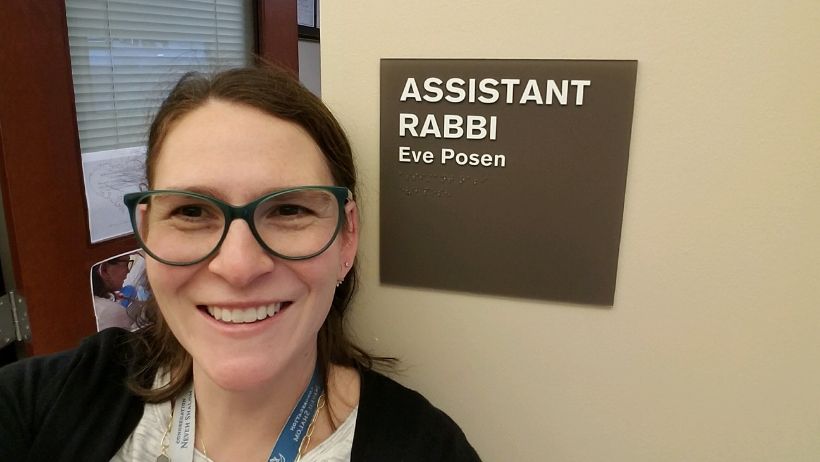When Duncan and I decided to get married, one of the questions we had to consider was what I would do about my last name. The traditional expectation (though not so much these days) was that I would take his name, making me “Mrs. Gilman” or “Rabbi Gilman.” However, as much as I love him and his family, something didn’t sit right with me about changing my name. My sister and I are the last two Posens of our generation, and we have no male cousins who would automatically carry on that name. Also, I became a rabbi largely because of the influence of my family. I grew up sitting in shul with my grandparents and celebrating holidays and virtually every Shabbat with my family. I am who I am, a Posen, because of that experience, and since all of my grandparents and my father had passed before my ordination, becoming “Rabbi Posen” was a way for me to honor their legacy and carry on our family name for one more generation.

So much of Jewish law focuses on the traditions of our forefathers, but this week’s Torah portion, Pinchas, takes the first step in changing the standard. Parshat Pinchas begins with the story of Pinchas (identified as Aaron’s grandson) and the extreme action he took toward those who defied the prohibition against idolatry. Then we move to the daughters of Zelophechad (Joseph’s great-great-great-grandson), who want to inherit land after their father’s death because he had no sons. Then Joshua is appointed Moshe’s successor, and we end with the sacrifices we are to make for Rosh Chodesh and the holidays.
The daughters of Zelophechad represent an interesting moment in the Bible. Traditionally, women were not guaranteed inheritance from their father’s estate. If a man died, his inheritance was for the sons. In this case, there were no surviving sons, and the daughters felt it was their right to receive their father’s estate. The daughters petition Moshe for this, and Moshe doesn’t know how to proceed. The daughters argue that by not receiving an inheritance, their father’s name will be wiped out. The ownership of land was more than monetary security; it was the security of their legacy and their place in the world.
So much of what we do in the world is tied to where we’ve come from. Whether land or legacy, we have an identity that shapes us and tells our story, and the Torah this week reminds us that that story is worth fighting for.



